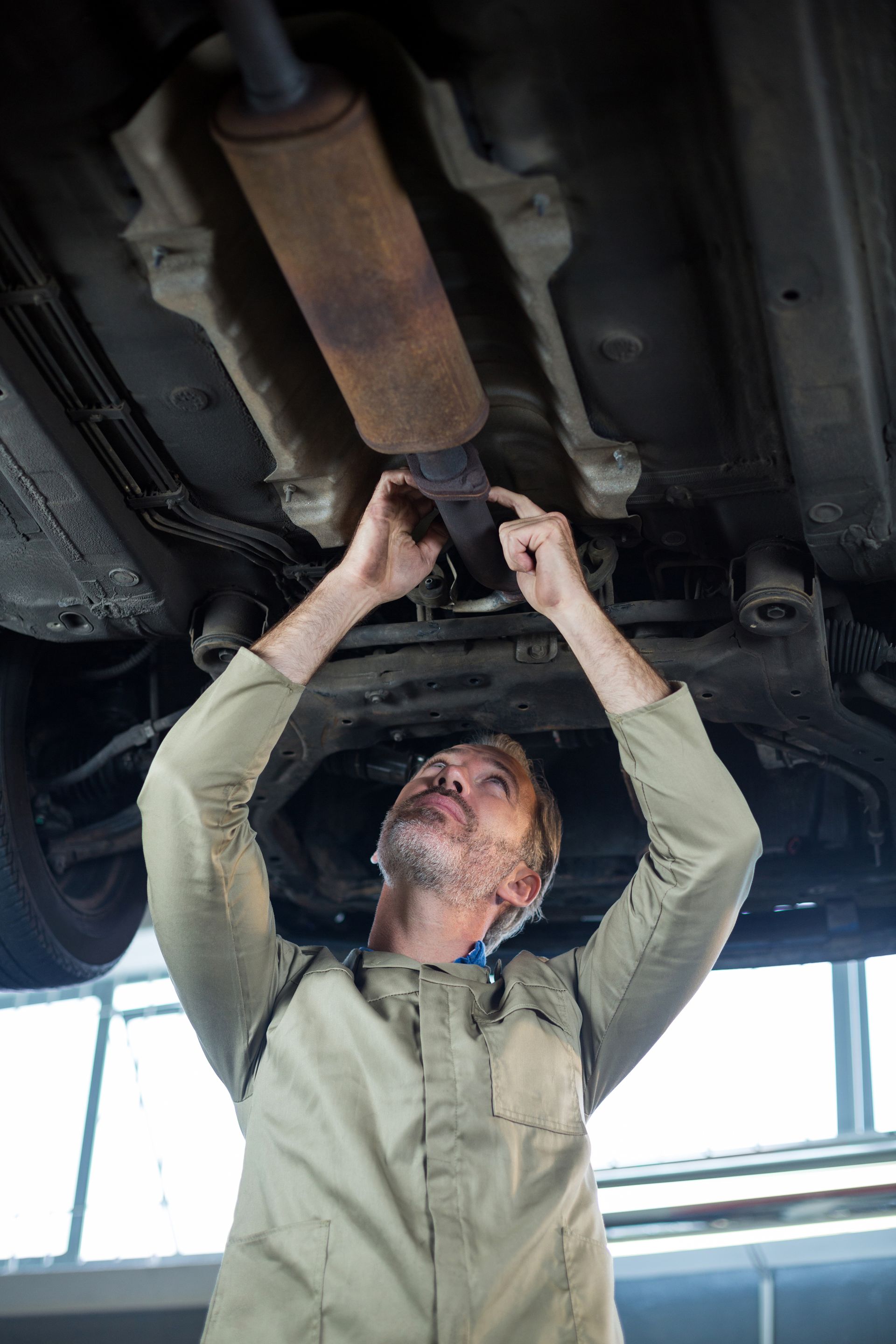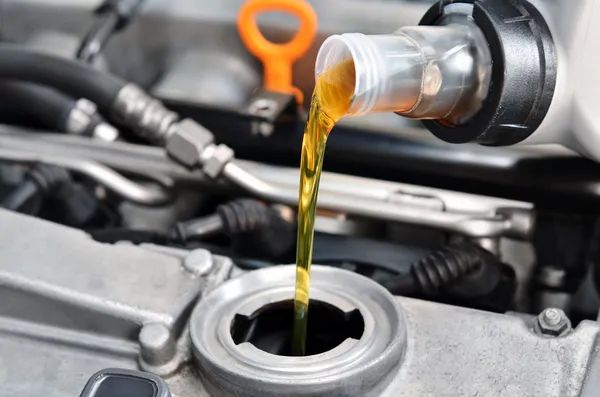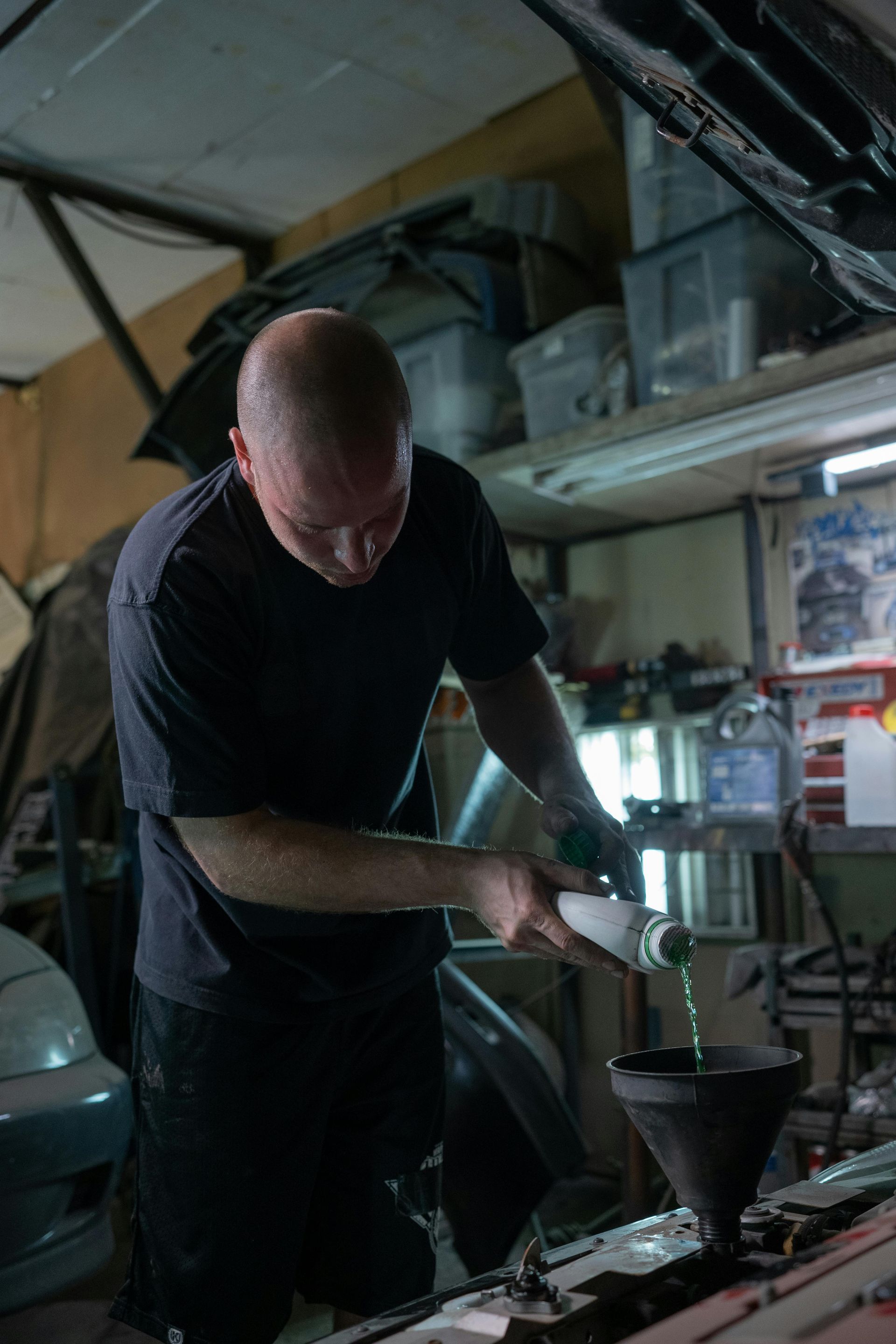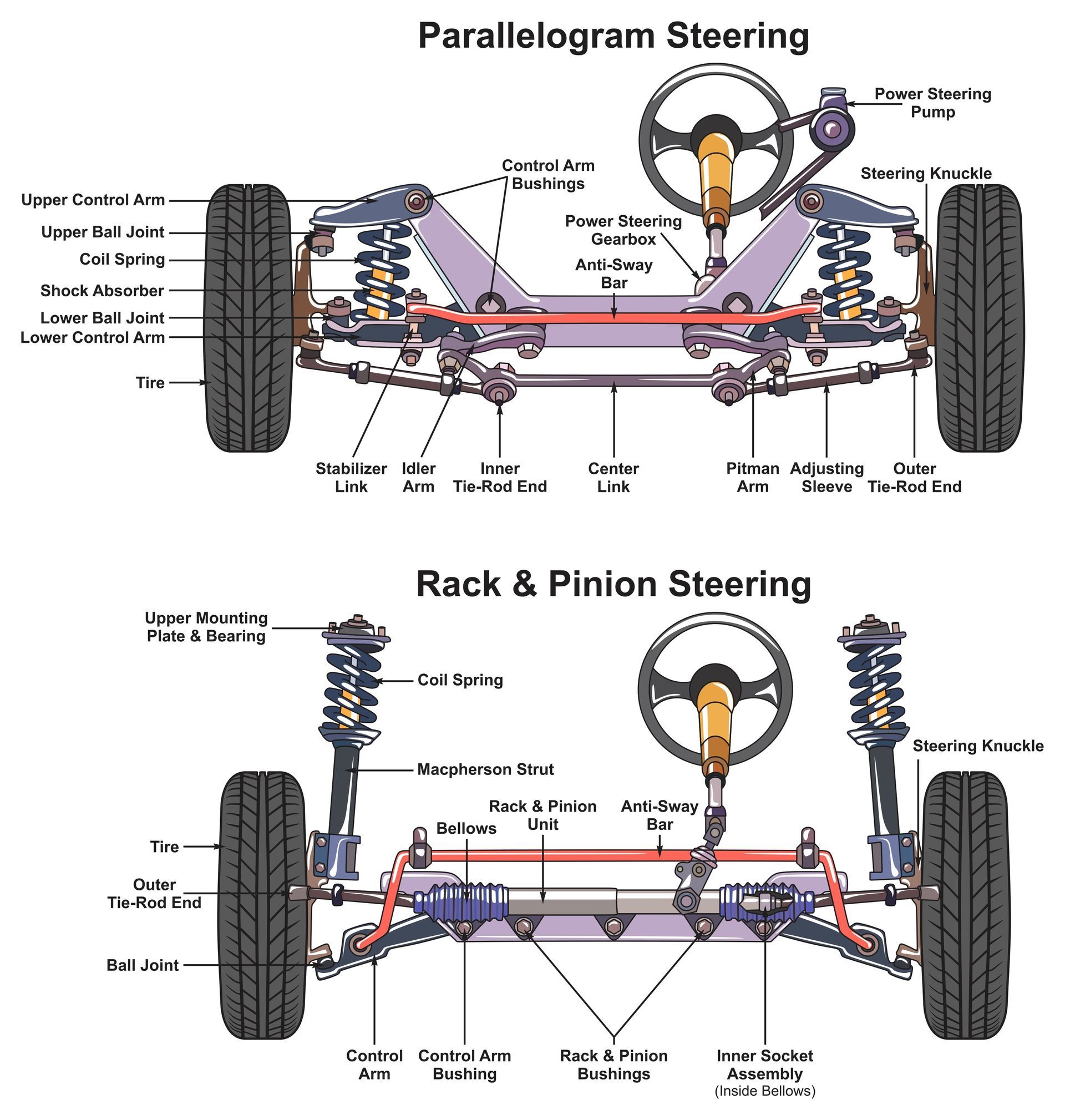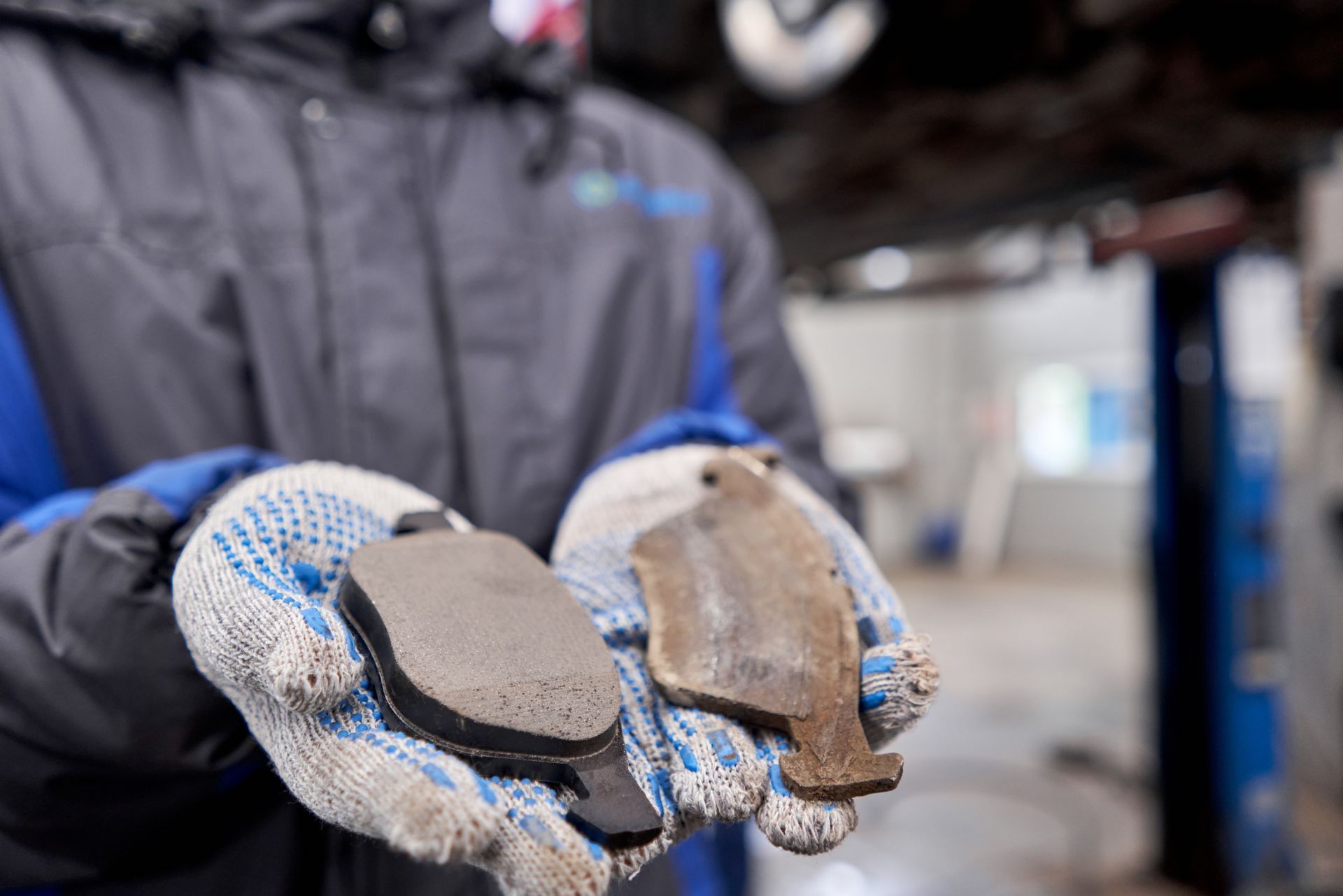The bite of winter air doesn't just affect us—it can take a serious toll on our cars. From frozen fluids to stressed batteries, the cold months present unique challenges that can turn a reliable car into a troublesome burden.
While many drivers wait until problems arise before seeking help, the smartest approach is preventive maintenance with the help of professional repair facilities.
Auto and collision repair centers
offer peace of mind that DIY maintenance simply can't match.
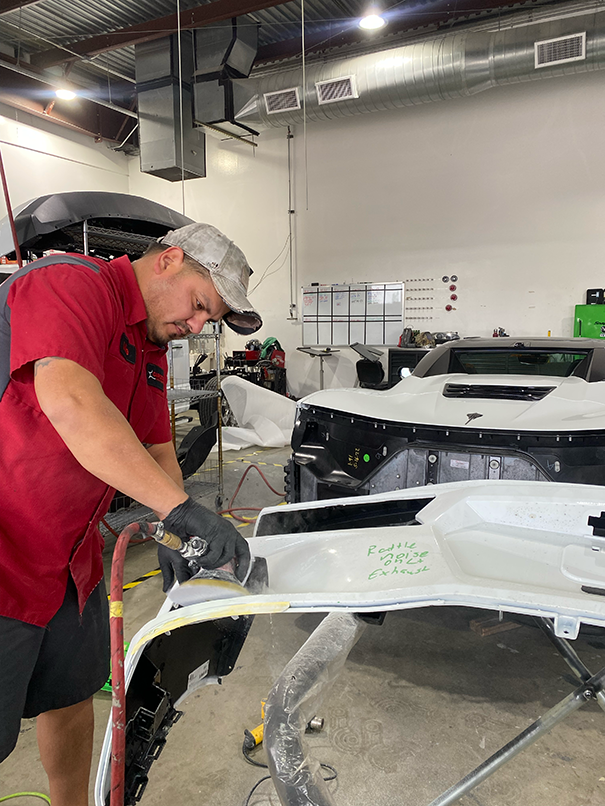
Whether you're facing heavy snowfall or just occasional cold snaps, proper winter maintenance isn't just about comfort—it's about protecting your investment and ensuring reliability when you need it most.
Let's explore the
essential car maintenance tips that will keep your vehicle running smoothly during the winter months.
Why Winter Car Care Matters
Winter brings unique challenges for vehicles. Cold temperatures affect everything from your battery's performance to tire pressure, while wet or icy conditions test your vehicle's safety systems.
Being prepared isn't just about handling severe weather—it's about maintaining your vehicle's performance and longevity throughout the season. Regular winter maintenance can help:
- Prevent costly repairs by catching issues early
- Improve fuel efficiency during cold months
- Extend your vehicle's overall lifespan
- Ensure reliable transportation when you need it most
- Maintain your vehicle's resale value
- Most importantly, keeps you and your passengers safe on winter roads
Essential Fluids Check and Maintenance
Your vehicle's fluids are its lifeblood, and winter conditions make proper fluid maintenance even more crucial. Here's what you need to monitor:
Engine Oil
Winter driving demands more from your engine, making oil changes particularly important. Cold starts put additional strain on your engine, and the right oil viscosity becomes crucial.
Consider switching to a winter-grade oil if recommended by your vehicle manufacturer.
Fresh oil ensures better engine protection during those cold morning starts and improves overall engine performance.
Antifreeze/Coolant
Your cooling system needs special attention during winter months. Check your antifreeze levels and concentration—a 50/50 mix of antifreeze and water provides optimal protection.
If you haven't flushed your cooling system in the past two years, now might be the time. This simple maintenance step can prevent expensive repairs down the road.
Windshield Washer Fluid
Switch to a winter-formula windshield washer fluid that won't freeze in lower temperatures. This ensures clear visibility when road spray and salt residue accumulate on your windshield. Keep an extra bottle in your trunk for emergencies.
Battery Care and Maintenance
Cold weather can be particularly harsh on car batteries. Your battery works harder in colder temperatures, and a battery that performs well in summer might struggle when winter arrives. Here's what to check:
- Have your battery tested, especially if it's more than three years old
- Clean any corrosion from battery terminals and cables
- Ensure all cable connections are tight and secure
- Consider a battery with higher cold cranking amps (CCA) for better cold-weather performance
Tire Safety and Maintenance
Your tires are your vehicle's only contact with the road, making them crucial for winter safety. Proper tire maintenance becomes even more critical during cold months:
Tire Pressure
Cold weather causes tire pressure to drop—for every 10-degree decrease in temperature, tires can lose 1-2 PSI. Check your tire pressure regularly, especially during cold snaps. Proper inflation improves handling, fuel efficiency, and tire longevity.
Tread Depth
Winter driving demands good tire tread for optimal traction on wet, snowy, or icy roads. Use the penny test—insert a penny into your tire's tread with Lincoln's head upside down. If you can see all of Lincoln's head, it's time for new tires.
Winter Tires
Consider switching to winter tires if you live in an area with regular snowfall or frequent freezing temperatures. Winter tires provide superior traction in cold conditions, even on dry pavement, due to their specialized rubber compounds and tread patterns.
Brake System Inspection
Winter driving can be more demanding on your brakes. Wet and icy roads require longer stopping distances, making brake maintenance crucial:
- Check brake fluid levels and condition
- Listen for any unusual sounds when braking
- Pay attention to brake pedal feel—any sponginess warrants immediate attention
- Have your brake pads inspected and replaced if necessary
Visibility Matters
Clear visibility is crucial for safe winter driving. Here's how to ensure you can see and be seen:
Windshield Care
- Replace windshield wipers showing signs of wear
- Check for any chips or cracks in your windshield—cold weather can make them worse
- Keep your windshield clean inside and out to prevent fogging
- Consider applying a rain-repellent coating to your windshield
Lighting Systems
- Test all exterior lights, including brake lights and turn signals
- Clean headlight lenses to ensure maximum visibility
- Replace any burnt-out bulbs immediately
- Consider upgrading to higher-performance bulbs for better visibility
HVAC System Maintenance
A properly functioning heating system is crucial for both comfort and safety during winter:
- Test your heater and defroster before cold weather arrives
- Replace the cabin air filter if needed
- Have your A/C system checked—it helps dehumidify the air and prevent fogging
- Ensure all vents are working properly and directing air where needed
Emergency Preparedness
Winter weather can be unpredictable, so keeping an emergency kit in your vehicle is essential. Include:
- Flashlight with fresh batteries
- Basic tool kit
- Jumper cables
- Phone charger
- First aid kit
- Blanket
- Ice scraper and snow brush
- Sand, kitty litter, or traction mats
- Small shovel
- Warm gloves and extra warm clothing
Snow Safety Tips if You Become Stranded in the Winter
Becoming stranded in your car during a winter storm can be a frightening and dangerous situation. Being prepared and knowing what to do can significantly increase your chances of survival. Here are some essential tips to follow if you find yourself stranded in the snow:
Stay Calm and Stay Put: Panic is your worst enemy. Staying with your vehicle provides shelter and makes you easier to locate. Avoid wandering off in search of help, as disorientation and hypothermia can set in quickly.
Conserve Fuel: Run the engine sparingly, only long enough to warm the cabin. Ensure the exhaust pipe is clear of snow to prevent carbon monoxide poisoning. Crack a window slightly for ventilation while the engine is running.
Stay Visible: Turn on your hazard lights to alert other drivers and rescuers to your presence. Tie a brightly colored cloth, if available, to your antenna or door handle to further increase visibility.
Communication is Key: If possible, call for help immediately. If your cell phone has service, contact emergency services or family/friends to inform them of your situation and location. Conserve your phone battery as much as possible.
Stay Warm: Dress in layers and use blankets, coats, or anything available for insulation. Huddle with other passengers for warmth. Avoid overexertion, as this can lead to sweating and increased heat loss.
Melt Snow for Water: If you're running low on water, melt snow in a container and drink it. Avoid eating snow directly, as it can lower your body temperature.
Signal for Help: If you see or hear approaching vehicles or aircraft, signal for help using a flashlight, mirror, or anything reflective.
Professional Maintenance: Trust the Experts
While many routine maintenance tasks can be performed at home by knowledgeable individuals, certain procedures require specialized tools, equipment, and expertise best handled by trained professionals.
Regular professional maintenance is not just about fixing existing problems; it's about preventing them.
A thorough inspection by a qualified mechanic can identify potential issues before they become major headaches, saving you both time and money in the long run. Think of it as an investment in your vehicle's longevity and your peace of mind.
Professional mechanics can perform a comprehensive inspection of your vehicle's vital systems, including:
- Comprehensive Visual Inspection: A trained eye can spot subtle signs of wear and tear, leaks, or corrosion that might be missed by an untrained individual.
- Diagnostic Scans: Modern vehicles rely heavily on electronic systems. Diagnostic scans can pinpoint electronic faults and sensor issues that are difficult to diagnose otherwise.
- Specialized Fluid Services: Beyond simply topping off fluids, professional fluid services often involve flushing and replacing fluids like brake fluid, transmission fluid, and coolant, which is crucial for optimal performance and preventing long-term damage.
- In-Depth Brake System Inspection: Professionals can assess the condition of brake rotors, calipers, and lines, ensuring your braking system is operating safely and efficiently.
- Advanced Tire Services: Beyond tire rotation and balancing, professionals can check for alignment issues, uneven wear patterns, and internal damage that could compromise tire safety.
If you're in the Houston area,
Elite Auto Experts specializes in comprehensive vehicle maintenance. Their certified technicians offer complete winter maintenance inspections, professional fluid services, battery testing and replacement, brake system maintenance, tire services, and alignment.
Choosing a reputable repair shop with certified technicians is essential for ensuring quality service and peace of mind. Don't hesitate to ask about their certifications, experience, and warranties.
Conclusion
Winter car maintenance is crucial for vehicle performance, longevity, and, most importantly, safety, regardless of your specific climate. Regular maintenance and attention to the key areas discussed in this guide will significantly increase the likelihood of your vehicle running reliably throughout the demanding winter months.
Remember, winter conditions put extra stress on all vehicle systems, from the battery and electrical system to the engine, brakes, and tires.
Don't wait for problems to develop—preventive maintenance is always a more cost-effective strategy than reactive repairs. Think of regular maintenance as an investment in your vehicle's health and your own safety.
Remember, a well-maintained vehicle isn't just about reliability—it's about the safety and well-being of you, your passengers, and other drivers on the road.
Take these winter maintenance steps seriously, and you'll be rewarded with trouble-free winter driving, no matter what challenges the season brings. By being proactive and prepared, you can navigate winter roads with confidence and peace of mind.
Contact us today or
visit our site to start getting your car winter-ready!
